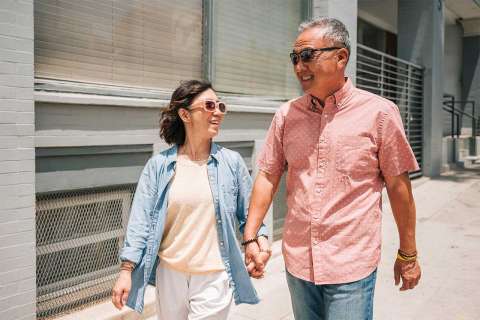Hello, dear readers, and welcome to a high-summer letters column. Wildfire smoke and heat waves are posing a challenge for many of us. If you're in an affected area, please take precautions. Limit outdoor or strenuous activities when possible, stay hydrated and check in with children and older adults, who are at particular risk in these conditions. We have several heat- and smoke-related questions in our inboxes and will be devoting columns to these topics in the weeks to come. And now, your letters.
-- The status of the pandemic is on the minds of several of you. "Is the pandemic officially over?" a reader from Los Angeles asked. "Hardly anyone I know is bothering to wear a mask anymore, and you don't hear about it on the news, either."
On May 11, the federal government declared an end to the public health emergency for COVID-19. However, the coronavirus is still with us. We are in the process of shifting from the pandemic phase, which is the unhindered spread of an infectious disease, to the endemic chapter of COVID-19. That means the numbers of infections are no longer growing exponentially, and health care systems are not overwhelmed. Vaccines have played a key role in this shift, as have advances in medical treatment.
That said, COVID-19 remains a significant health threat. Taking precautions remains a wise choice, particularly for those at increased risk of grave illness. That includes masking in crowded areas and among strangers and remaining isolated from those with a COVID infection.
-- Speaking of vaccines, a number of readers have asked if they are eligible yet for another vaccine. "It's been six months since my last shot," a reader says. "I'm 70 years old, in good health and I want to be sure to stay that way. When can I get another booster?" The Centers for Disease Control and Prevention recommends that everyone 6 and older should get one dose of the updated Pfizer-BioNTech or Moderna COVID-19 vaccine, also known as the bivalent vaccine. This is regardless of whether they’ve previously received any of the original vaccines. People 65 and older can get a second dose of the bivalent vaccine four or more months after their initial dose. That means you are eligible. Those who are immunocompromised can also get a second dose. However, their waiting period is shorter -- just two months.
-- After a column that discussed the physical challenges and side effects of some cancer treatments, we heard from a cancer survivor. "In my experience, patients often don't get complete information about the expected outcomes of chemo and radiation," she wrote. "Thank you for your truthful answer about the negative, even disabling, effects of cancer treatment, such as lung damage, heart damage and brain damage. Sometimes, the outcomes may not be worth it."
Thank you, again and always, for taking the time to write. We continue to work our way through so much mail and will have a few more bonus letters columns this summer.
(Send your questions to [email protected], or write: Ask the Doctors, c/o UCLA Health Sciences Media Relations, 10960 Wilshire Blvd., Suite 1955, Los Angeles, CA, 90024. Owing to the volume of mail, personal replies cannot be provided.)





